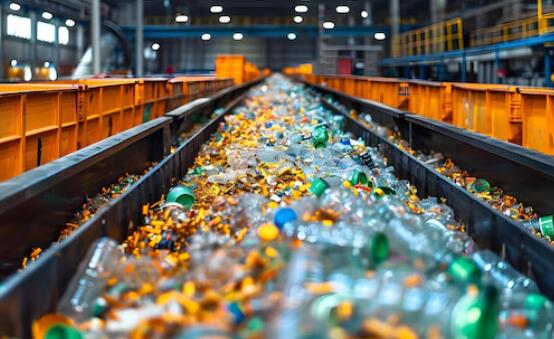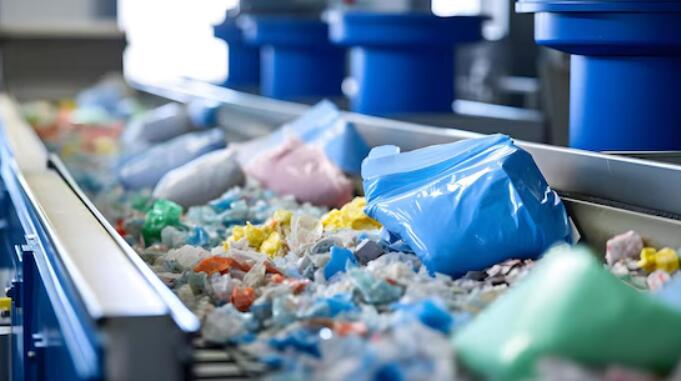Recycling sorting equipment can bring significant economic and environmental benefits to humanity. As one of the world’s leading system integrators, PEAKS ECO understands the importance of separating municipal solid waste (MSW) into valuable recyclables and high-quality refuse-derived fuel (RDF). With increasing regulatory pressure on landfilling untreated MSW and the active search for alternative energy sources, energy-from-waste solutions are gaining momentum.

One of the primary advantages of sorting garbage is the reduction of land occupation. Many materials in domestic waste are not easily degradable, leading to long-term land erosion and loss of valuable land resources. By sorting and recycling these materials, we can significantly reduce the volume of waste that needs to be landfilled, preserving land for more productive uses.
For example, statistics show that efficient garbage sorting can reduce landfill requirements by up to 60%. In cities with advanced waste sorting systems, such as Tokyo, landfilling rates have dropped dramatically, showcasing the potential of sorting technologies to alleviate land stress.
Recycling reduces environmental pollution by preventing harmful substances from contaminating soil, water, and air. Properly sorting hazardous waste, such as batteries, electronics, and chemicals, ensures they are treated appropriately, reducing the risk of heavy metals, organic pollutants, and pathogenic bacteria entering the environment.
PEAKS ECO’s integrated systems play a crucial role in minimizing pollution by effectively separating and processing hazardous and recyclable materials. These systems also improve the calorific value of non-recyclable waste, making it suitable for RDF production, which can replace fossil fuels in energy generation.
Sorting garbage enables the transformation of waste into valuable resources. By separating recyclable materials such as metals, glass, paper, and plastics, we can reduce resource extraction and promote a circular economy.
Metals: Aluminum and iron products can be melted and reused, saving money and reducing the environmental impact of mining and smelting new metals.
Glass: Recycling glass saves up to 30% of the energy required for producing new glass and minimizes damage to ecosystems caused by mining.
Paper: Recycling one ton of paper saves approximately 17 trees, 26,500 liters of water, and reduces greenhouse gas emissions by up to 74% compared to producing new paper.
Plastics: Recycled plastics can be converted into new products or refined into crude oil, which can then be used to produce diesel and gasoline.
Separately classifying kitchen waste, which is rich in organic matter, provides high-quality raw materials for composting. This process produces organic fertilizers that enhance soil fertility and reduce reliance on chemical fertilizers. Additionally, diverting kitchen waste with high water content from incineration increases the calorific value of other wastes, improving the efficiency of energy-from-waste plants.
Effective waste sorting significantly reduces the amount of waste entering sanitary landfills, extending their operational lifespan. By diverting biodegradable and recyclable materials from landfills, we can optimize their usage and delay the need for costly expansions or new landfill sites.

Sorting garbage at the source improves the purity of recyclable materials, making recycling processes more efficient and cost-effective. This reduces the need for complex pre-sorting at recycling facilities and lowers transportation and processing costs. For instance, advanced sorting equipment, such as PEAKS ECO’s automated recycling systems, utilizes technologies like optical sorting, air separation, and magnetic separation to achieve high-precision sorting.
Energy-from-waste (EfW) is a sustainable waste management approach that converts non-recyclable waste into energy. PEAKS ECO’s expertise in producing high-quality RDF supports the global transition to alternative energy sources. RDF, derived from sorted waste, serves as a clean and efficient fuel for power generation and industrial applications, reducing reliance on fossil fuels.
According to industry data, one ton of RDF can generate approximately 500 kWh of electricity, highlighting its potential as a renewable energy source. Countries like Germany and Sweden have adopted EfW systems extensively, reducing greenhouse gas emissions and advancing energy sustainability.
Implementing waste sorting programs raises public awareness about environmental conservation. Citizens become more conscious of their waste disposal habits, leading to a cultural shift toward sustainability. Educational campaigns and incentives, such as recycling rewards and reduced waste disposal fees, further encourage participation in waste sorting initiatives.
Global Waste Generation: The world generates approximately 2.01 billion tons of MSW annually, with only 19% recycled or composted. Advancing sorting and recycling technologies can significantly increase this percentage.
Case Study: In South Korea, mandatory food waste recycling programs have reduced landfill waste by over 30%, demonstrating the potential of targeted sorting initiatives.
Economic Benefits: The global recycling market is projected to reach $377 billion by 2030, driven by increased demand for recycled materials and stricter waste management regulations.
The waste management industry is evolving rapidly, with innovations in technology and policy driving progress:
AI and Robotics: Advanced sorting systems equipped with artificial intelligence and robotic arms can identify and separate materials with unparalleled accuracy, increasing recycling rates.
IoT Integration: Smart waste bins equipped with IoT sensors can monitor waste levels and optimize collection schedules, reducing operational costs.
Circular Economy Models: Businesses are increasingly adopting circular economy principles, designing products with recyclability in mind and closing the loop on resource use.
Sorting garbage is a cornerstone of sustainable waste management, offering economic, environmental, and social benefits. By leveraging advanced sorting technologies, such as those developed by PEAKS ECO, we can reduce land occupation, minimize pollution, and turn waste into valuable resources. Furthermore, integrating energy-from-waste solutions and promoting public awareness will pave the way for a cleaner, more sustainable future. Embracing these practices today ensures a healthier planet for generations to come.